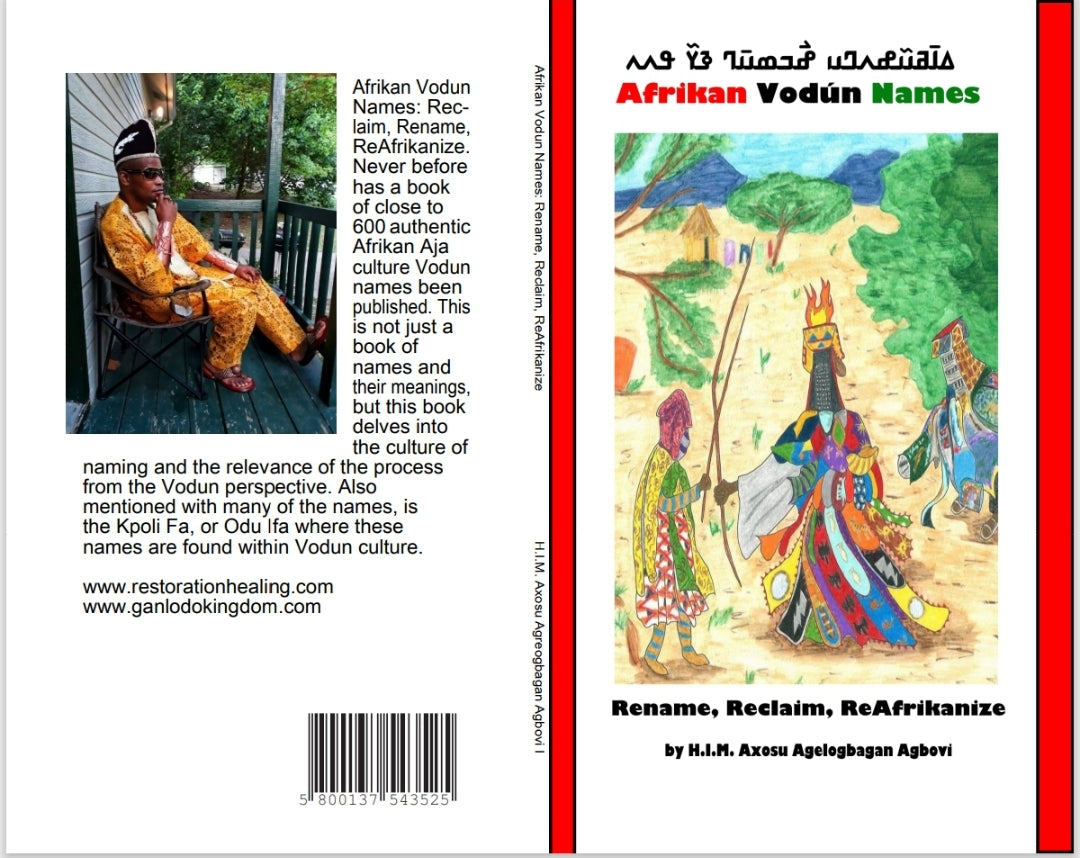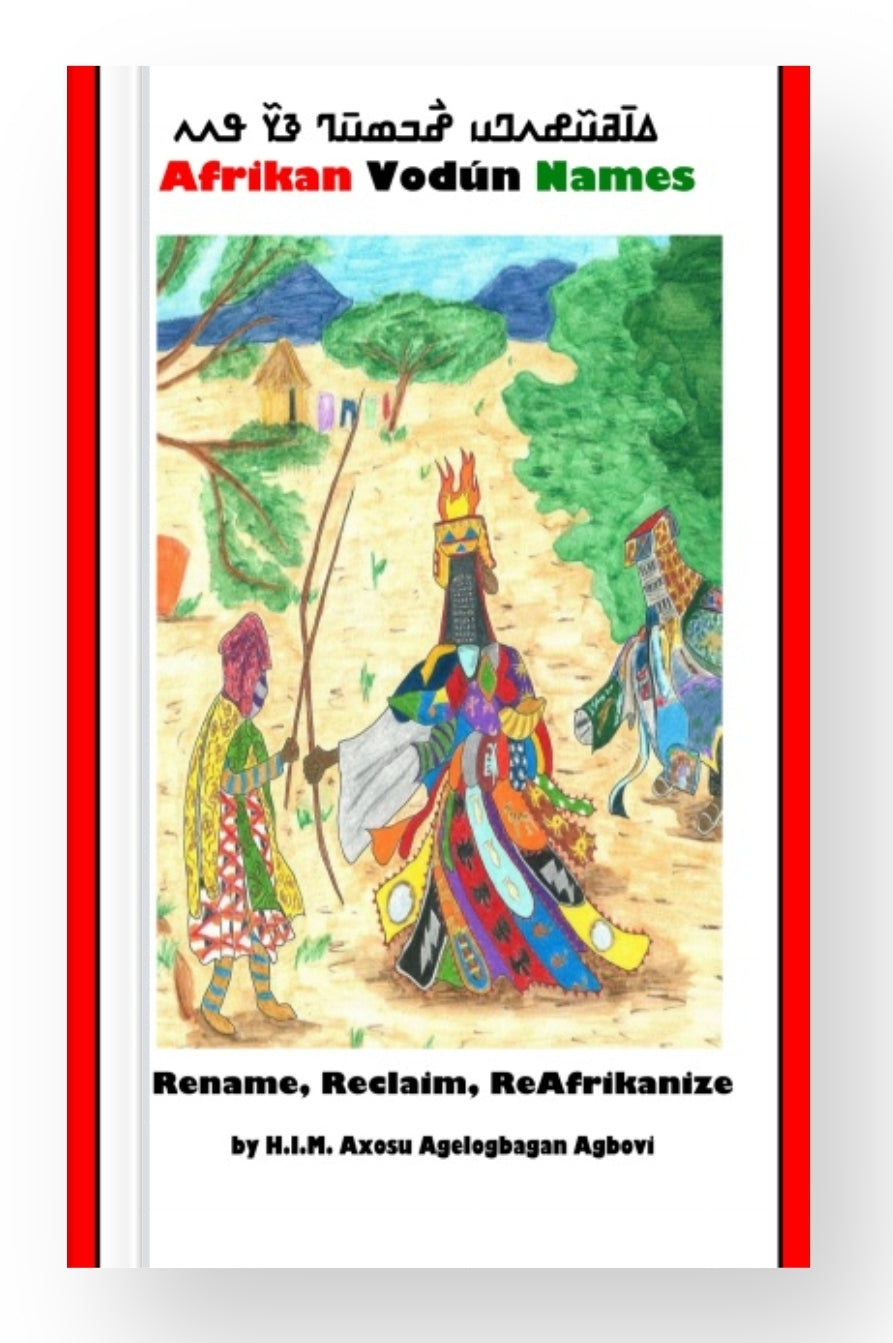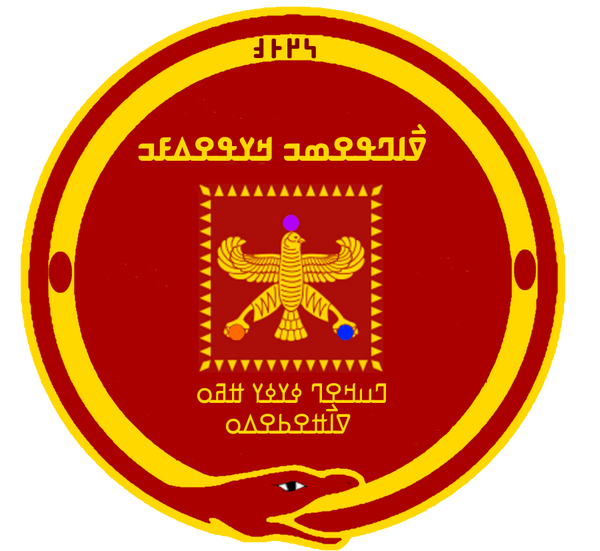Gànlɔdó Maroon Monarchy
African Vodun Names: Renaming, Reclaiming, ReAfrikanizing ©2017 - 2025
African Vodun Names: Renaming, Reclaiming, ReAfrikanizing ©2017 - 2025
Couldn't load pickup availability
Do Nyí Aja – About Aja Names
Literally, the Aja word nyí means “mark of distinction, representation, personal symbol, name”. Among the Zulu and other Nguni - speaking people of South Afrika, the word for name is igama “your symbol” – its original meaning being a symbol engraved upon a flat stone. In some early Afrikan societies, when a child was given a name, the symbolic meaning of the child’s name was painted on a round pebble in red or black pigment, and this symbol was kept for as long as the person lived. Upon death, the “named-pebble” was broken into two pieces and returned to earth’s bed –transcending back into the spiritual realm.
Many of the names are Fɔ̀n and some are not. We did not wish to go into ethnically distinguishing each one in this volume. Yet, by doing this, we have started the dialogue of not automatically attributed what the uncultured scholars call “Gbe-speaking” to the Fɔ̀n people alone. A list of Ajã names and their meanings has never been introduced before. But here we are!
What exactly is in a name? Well, history is in a name. Tradition is in a name. Lineage, beauty, prosperity, strength and cultural celebration are in a name. Pride is in a name. Distinction is in a name. Appreciation, dignity, and respect can all be found in a name.
Names go much further than the individual to whom they are attached. They tell stories of communities that no history book could compete with. They draw pictures of glory and greatness that no artist could attempt to illustrate. An Afrikan name has the power to keep in memory victories of the past and promise prosperity for the future, as well as remind one to not repeat the mistakes of the past. They’re passed from generation to generation in hopes of restoring, maintaining or creating a sense of honor.
In the Afrikan context, a name is not taken with levity since a huge socio-cultural importance is attached to it. For instance, among the Ajã there are many proverbs which reflect the importance given to a name. One of the sayings is: “Nyí ɖagbe do we sika alo fadaka we” – meaning, "a good name is more precious than gold and silver". The name serves as a socio-cultural expression and elucidation of self-concept. From the interactionist perspective, names are not just abstract terms couched in indefiniteness, they are more than mere labels, but loaded with meaningful and symbolic connotations.
We can be contacted at ekaabokilombo@gmail.com
Share




